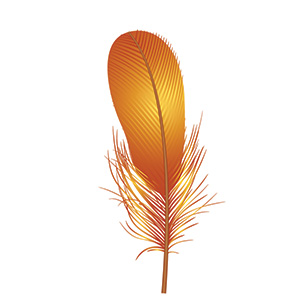Talking Horses, Doe in Specs, and Back Yard Albatross
Talking Horses
You've never heard one talk? I'll confess they’re soft-spoken, and typically adenoidal. Maybe you did hear one, only to persuade yourself you'd imagined it. (They're not in the habit of repeating themselves.) Most often, they are to be heard around dawn, with a shimmer of frost, perhaps, on the grass. Approach respectfully; no need for sugar cubes or carrots. Look for a solitary, thoughtful sort of horse. Say nothing.
Likely they were once quite garrulous. But your typical 21st-century horse, so an equine scientific pal informs me, has turned taciturn. She or he speaks just a handful of times in the course of his/her life, and never at length. Only once did I have the great good fortune to hear a horse speak—a chestnut mare, Lucille. Chosen and uttered with exquisite care, epigrammatic one might say, her words are forever engraved on my memory's wall.
Certain horses are multilingual. Others—and these an ever-increasing majority—no longer trouble to exercise the gift of speech at all. In the company of their fellow 'beasts' they communicate through gesture, tossing manes and whisking tails. They have moved beyond the need for words.
These increasingly believe that their sage pronouncements—when not actually misheard—go largely unappreciated by humankind. Such is my own belief. Word-wasters like ourselves make for poor listeners. For another century or so, those of us tuned to quiet attention may yet discover themselves, in solitary stable or paddock, addressed, inspired, transported. Five hundred years hence, alas, horses will have ceased altogether to speak.
***
Doe in Specs
When you're an optician you tend to notice glasses, especially on a deer. There I was, same as every morning, walking along the rail trail, and there she was in mid-path, a mid-sized doe. About a hundred yards ahead (but I have first-class eyesight) with her white tail turned towards me. Such encounters were commonplace; I kept walking. As I grew closer, however, she turned to face me and I saw: circular lenses and stylish blue frames. Arms perched crookedly on her nose as if the glasses might fly off any moment.
I halted, expecting the doe to slip away into the trees. She didn't. We observed one another; it came to me that her expression was a familiar one. The expression customers get when they take off their glasses—blurred vision. She needs a stronger prescription, I told myself. And those glasses were never meant for a deer. I was wondering how I could get her into the store. Would she sit still, or stand, while I went about testing and fitting? (All at no charge of course. Imagine the free publicity!) I pulled out my phone, belatedly, to snap a few pictures and, in that instant, she was gone.
I still take that daily walk and I still see plenty of deer. Half a dozen some days, but none of them bespectacled. You get to wondering about your own sight, though I’m practically 20:20 as I say. Or my head maybe, a hallucination? Maybe I'd been working too hard. I'm not sure why but I never told Jack, or anyone in the store. I thought I might tell my sister but . . . Maybe if I saw that deer again, or a different one, maybe, in some other glasses. Somehow, I don't think I will, though.
***
Back Yard Albatross
A man I knew, an editor on our local paper, gave me the tip—the paper had refrained from dispatching a reporter. He said, and I could picture his smirk, it might appeal to an amateur zoologist like myself. The house was just off the ring road. Perhaps I could send them some photos if the report should prove—cough—prove accurate.
I phoned from the car, and again on arrival to be sure the woman would open the door. She apologized for her dressing gown. She'd noticed the bird first thing—'Hard to miss it'—and had been keeping an eye ever since. We settled down in the conservatory. It appeared to be napping. The size alone would have told you; still I confirmed it. 'Yep, that's an albatross you've got out there alright.'
My hostess seemed satisfied, and then restless. She must have been watching the albatross for hours. 'Well,' she said, 'best get myself dressed, and I'll do us a pot of tea.' No sooner was she gone than what did the albatross do but take off? I was studying its flight—nothing that size ought to be airborne—when it disappeared over the garage.
Gwen was a bit put out—as if I'd deliberately scared the bird off—but the tea soon mellowed her. I asked if she'd taken any photos, but she hadn't. Probably just as well, I thought, else we'd have twitchers swarming all over. I thanked Gwen for her hospitality. We'd both witnessed something amazing that morning, a wonder of nature.
'Nothing to what we sometimes get,' she told me. 'They had a rhino next door—left quite a dent in Frank's car.'
'A rhino-ceros?'
'Get anything you like, if you put out the right feed.' She said I should give her my number. She'd let me know the next time.
Paul Blaney has recently retired from a teaching position at Rutgers University. His latest novel is Jardin des Animaux from Signal 8 Press, and he is currently working on a Borges-inspired bestiary of animal stories. This is the twelfth time his work has appeared in The Cafe Irreal, most recently in Issue 91. His work also appeared in our print anthology, The Irreal Reader: Fiction & Essays from The Cafe Irreal (Guide Dog Books 2013).

